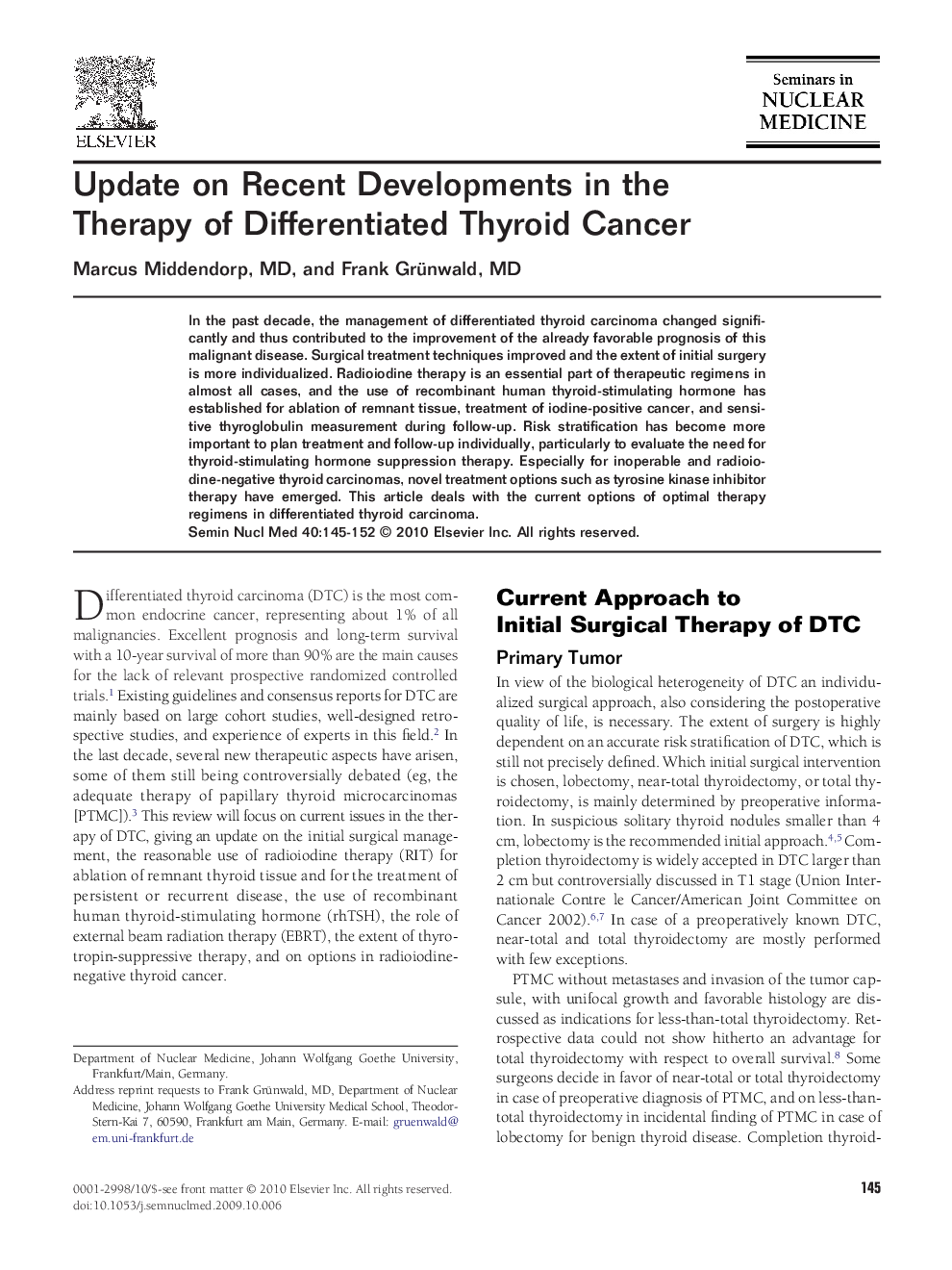| Article ID | Journal | Published Year | Pages | File Type |
|---|---|---|---|---|
| 4251236 | Seminars in Nuclear Medicine | 2010 | 8 Pages |
Abstract
In the past decade, the management of differentiated thyroid carcinoma changed significantly and thus contributed to the improvement of the already favorable prognosis of this malignant disease. Surgical treatment techniques improved and the extent of initial surgery is more individualized. Radioiodine therapy is an essential part of therapeutic regimens in almost all cases, and the use of recombinant human thyroid-stimulating hormone has established for ablation of remnant tissue, treatment of iodine-positive cancer, and sensitive thyroglobulin measurement during follow-up. Risk stratification has become more important to plan treatment and follow-up individually, particularly to evaluate the need for thyroid-stimulating hormone suppression therapy. Especially for inoperable and radioiodine-negative thyroid carcinomas, novel treatment options such as tyrosine kinase inhibitor therapy have emerged. This article deals with the current options of optimal therapy regimens in differentiated thyroid carcinoma.
Related Topics
Health Sciences
Medicine and Dentistry
Radiology and Imaging
Authors
Marcus MD, Frank MD,
